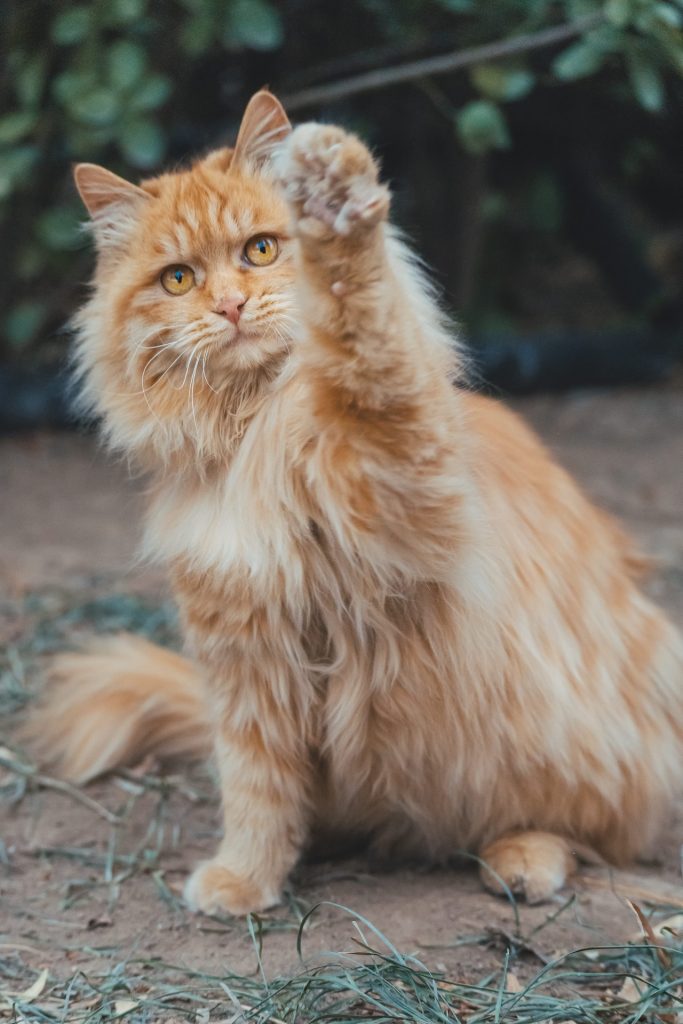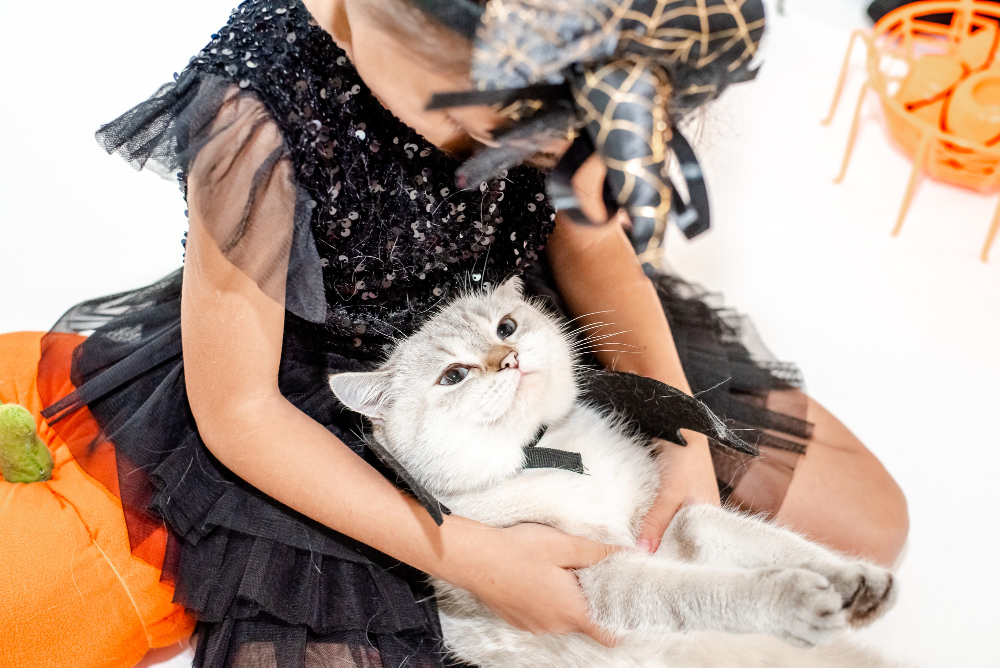MAINE COON KITTENS AND CATS
FAST FACTS
- Nickname: Gentle Giant
- Breed Group: Semi-longhair
- Height: 10-16 inches
- Weight: 8-18 lbs
- Life Span: 10-15 years
MAINE COON INFORMATION
MAINE COON BASICS
WHERE ARE MAINE COON CATS FROM?
The most logical theory regarding the Maine Coon’s origins is that European traders took long-haired cats aboard their ships as ratters in the 1700s crossed with native short-haired cats to produce the breed. The result was a new breed with a sturdy constitution and a tough, weather-resistant coat that could tolerate the weather in Maine.
WERE MAINE COON CATS BRED FOR A REASON?
Historically, the Maine Coon was bred to hunt mice and rats on farms.
HOW MANY TYPES OF MAINE COON PEDIGREES ARE THERE?
There is just one type of Maine Coon.
ARE MAINE COON CATS POLYDACTYL?
About 40% of Maine Coon cats once had multiple digits.
MAINE COON LIFESPAN
A Maine Coon may live for 10 to 15 years.
MAINE COON APPEARANCE
HOW BIG DOES A MAINE COON GET?
10-16 inches tall
HOW MUCH DOES A MAINE COON WEIGH?
8-18 lbs
WHEN DOES A MAINE COON STOP GROWING?
Maine Coons take up to 5 years to grow, making them slower to develop than other cats.
WHAT COLOR COAT DOES A MAINE COON HAVE?
While practically every cat colour and pattern is available, the brown tabby is the most typical colour and pattern observed in Maine Coons. Cats with solid patterns come in various colours, such as white, black, blue, and red; tortoiseshell; silver; black-silver; blue-silver; red-silver; and cream-silver; and particolor, which contains any solid colour with white markings.

WHAT EYE COLORS CAN A MAINE COON HAVE?
Maine Coons have green, gold, or copper-coloured eyes.
MAINE COON TEMPERAMENT & PERSONALITY
HOW VOCAL/TALKATIVE ARE MAINE COON CATS?
Although Maine Coons are not very talkative, they do have a unique chirp to their vocalization.
HOW AFFECTIONATE/FRIENDLY ARE MAINE COON CATS?
Maine Coons frequently show their owners a lot of affection.
ARE MAINE COON CATS GOOD WITH OTHER CATS?
Maine Coons tend to be friendly with other cats.
ARE MAINE COON CATS GOOD WITH DOGS?
The canine world is generally tolerated by Maine Coons.
ARE MAINE COON CATS GOOD MOUSERS/HUNTERS?
This breed was created specifically to hunt and catch mice and rats, and they still have the urge and ability to do so.
ARE MAINE COON CATS GOOD INDOOR CATS?
Yes. Regardless of individual preferences, it is advised that all cats be kept inside for safety reasons.
ARE MAINE COON CATS GOOD LAP CATS?
While Maine Coons like participating in their owners’ activities, they do not typically lap cats. Although they show affection, they do not want continual attention.
WHAT DO MAINE COON CATS LIKE TO DO?
Maine Coons enjoy the water and will probably join you in the shower to demonstrate how well their waterproof coats work.
HOW BIG OF A DIFFERENCE IS THERE BETWEEN A MALE AND FEMALE MAINE COON?
Maine Coon males are noticeably bigger than females.
MAINE COON DIET, GROOMING & HEALTH
WHAT DO MAINE COON CATS EAT?
Find out from your veterinarian what to feed your Maine Coon.
DO MAINE COON CATS EAT WET FOOD?
Yes
DO MAINE COON CATS LIKE MILK?
Milk is not recommended for cats.
HOW MUCH DO MAINE COON CATS SHED?
Maine Coon cats shed quite a bit because of their thick, fluffy coats.
WHAT TYPE OF COAT DO MAINE COON CATS HAVE?
The lush, smooth, fluffy, silky, and weather-resistant coat of a Maine Coon is impressive.
DO YOU NEED TO GROOM A MAINE COON CAT?
To prevent cat hair from being spread around your house, combing them twice a week is advised. Regular grooming also aids in avoiding matting. Every two weeks or so, all cats should have their claws clipped in addition to grooming. Cats should have their teeth washed twice a week since they are equally susceptible to periodontal illness.
 GROOM A MAINE COON CAT
GROOM A MAINE COON CAT
ARE MAINE COON CATS HYPOALLERGENIC?
No
DO MAINE COONS HAVE A LOT OF HEALTH PROBLEMS?
Generally speaking, the Maine Coon is a sturdy, strong breed that endured via natural selection in the severe environment of Maine.
WHAT DISEASES ARE MAINE COONS PRONE TO?
- Hypertrophic Cardiomyopathy (HCM): HCM is a condition in which the heart’s left ventricle abnormally thickens, limiting blood flow. It is the most typical reason for feline cardiac disease and can bring unexpected demise.
- Hip Dysplasia: Hip dysplasia is characterized by the improper growth or malformation of the hip joint. The joints and sockets can’t effectively connect because of the irregular form, so they rub and grind instead of moving quickly. Dysplasia-related rubbing can lead to several problems, including discomfort, lameness, and secondary osteoarthritis. If discovered before the beginning of arthritis, surgery can be performed to repair the joint.
- Others: In Maine Coons, spinal muscular atrophy is also present. The loss of neurons in the spinal cord that activates the skeletal muscles causes this hereditary disorder. A loss of neurons causes degeneration and muscular weakness. Cats can nonetheless have regular lives despite the condition’s lack of discomfort.
PURCHASING VS ADOPTING A MAINE COON
HOW MUCH DOES A MAINE COON COST?
While purchasing a Maine Coon from a breeder might cost anywhere from $800 to $2,000, adopting one only costs $75 to $100.
WHERE CAN I ADOPT A MAINE COON
A rescue specialising in Maine Coons would be the most straightforward place to find a home for one.
MAINE COON SHELTERS AND RESCUES
Some animal shelters and rescue organizations specialize in helping Maine Coon kittens find beautiful homes.
WHERE CAN I FIND A MAINE COON BREEDER?
Before you purchase a kitten from a breeder, we advise you to rescue a Maine Coon (or any cat). Across the nation, there are millions of stray cats, many of whom are purebred cats in need of homes. A Maine Coon adoption may change the adopter’s life and the cat’s.
It is safer to get a kitten from a reputed breeder if you still have doubts and want to buy a Maine Coon from a breeder. When working with a breeder, be sure that the breeder you’re buying from genetically tests their animals. You should also double-check the puppy’s health records. Finally, ensure the breeder will return any animals they sell if they cannot keep them in their home for whatever reason and confirm that they are dedicated to finding those animals new homes if necessary.

